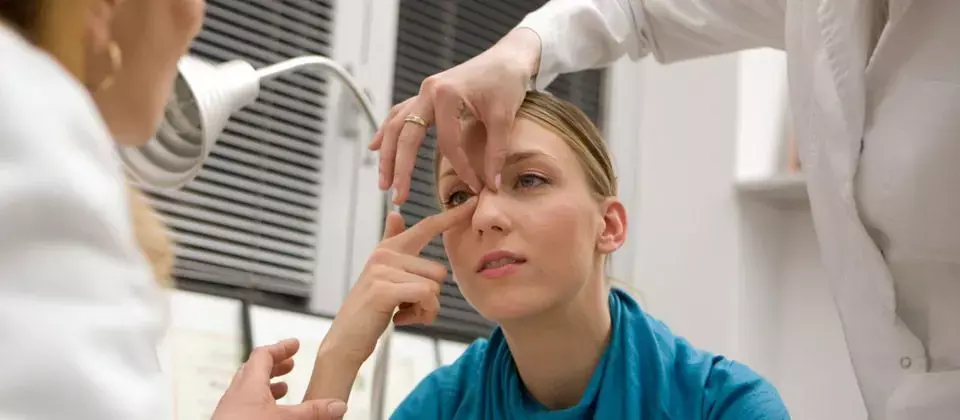- Home
- Medical news & Guidelines
- Anesthesiology
- Cardiology and CTVS
- Critical Care
- Dentistry
- Dermatology
- Diabetes and Endocrinology
- ENT
- Gastroenterology
- Medicine
- Nephrology
- Neurology
- Obstretics-Gynaecology
- Oncology
- Ophthalmology
- Orthopaedics
- Pediatrics-Neonatology
- Psychiatry
- Pulmonology
- Radiology
- Surgery
- Urology
- Laboratory Medicine
- Diet
- Nursing
- Paramedical
- Physiotherapy
- Health news
- Fact Check
- Bone Health Fact Check
- Brain Health Fact Check
- Cancer Related Fact Check
- Child Care Fact Check
- Dental and oral health fact check
- Diabetes and metabolic health fact check
- Diet and Nutrition Fact Check
- Eye and ENT Care Fact Check
- Fitness fact check
- Gut health fact check
- Heart health fact check
- Kidney health fact check
- Medical education fact check
- Men's health fact check
- Respiratory fact check
- Skin and hair care fact check
- Vaccine and Immunization fact check
- Women's health fact check
- AYUSH
- State News
- Andaman and Nicobar Islands
- Andhra Pradesh
- Arunachal Pradesh
- Assam
- Bihar
- Chandigarh
- Chattisgarh
- Dadra and Nagar Haveli
- Daman and Diu
- Delhi
- Goa
- Gujarat
- Haryana
- Himachal Pradesh
- Jammu & Kashmir
- Jharkhand
- Karnataka
- Kerala
- Ladakh
- Lakshadweep
- Madhya Pradesh
- Maharashtra
- Manipur
- Meghalaya
- Mizoram
- Nagaland
- Odisha
- Puducherry
- Punjab
- Rajasthan
- Sikkim
- Tamil Nadu
- Telangana
- Tripura
- Uttar Pradesh
- Uttrakhand
- West Bengal
- Medical Education
- Industry
Correcting Septal Deviation Might Reduce Incidence of Asthma, finds study

Asthma is one of the most common chronic inflammatory diseases of the lower respiratory tract that affects 300 million worldwide. In a recent study, researchers have reported that the incidence of asthma was higher in individuals with septal deviation. The study findings were published in The Journal of Allergy and Clinical Immunology: In Practice on November 12, 2021.
Studies suggest potential mechanistic links between upper and lower respiratory tract disorders. However, information is scarce regarding the impact of septal deviation (SD) on lower respiratory tract pathophysiology. Also, there is limited information regarding the association between SD and asthma. Therefore, Dr Yong Chul Lee and his team conducted a study evaluating the potential impact of SD on the incidence of asthma and examined whether surgical correction of SD (septoplasty) affects the incidence of asthma in SD.
In this retrospective study, the researchers used data from the National Health Insurance Service – National Sample Cohort (NHIS-NSC). They included 29,853 individuals with SD (n = 9,951) and compared them with those without SD as controls (n = 19,902), with no significant imbalances between the two groups. They further divided 9,951 patients diagnosed with SD into 2 subgroups. Patients who received septoplasty (n=1,526)and patients who did not receive septoplasty (n=8,425).
Key findings of the study:
- Upon follow up for 9 years, the researchers found that the incidence of asthma was 2.43 times higher in the SD group compared with the control group.
- Results from a follow-up in 2013 showed a lowered rate of asthma with septoplasty in the SD group (aHR = 0.83).
- Also, in subgroup analysis, they found high incidences of allergic rhinitis (aHR = 1.58) and chronic rhinosinusitis (aHR = 1.22) among patients with SD.
The authors concluded, "In this nationwide observational study, the incidence of asthma was higher in the septal deviation group compared with the matched controls. Moreover, septoplasty was associated with a lower incidence of asthma, suggesting that septal deviation is one of the treatable traits in patients with asthma. Further research is necessary to elucidate the relationship between SD and asthma, and intervention studies will be required to confirm a relationship between septoplasty and subsequent asthma development."
For further information:
Medical Dialogues Bureau consists of a team of passionate medical/scientific writers, led by doctors and healthcare researchers. Our team efforts to bring you updated and timely news about the important happenings of the medical and healthcare sector. Our editorial team can be reached at editorial@medicaldialogues.in.
Dr Kamal Kant Kohli-MBBS, DTCD- a chest specialist with more than 30 years of practice and a flair for writing clinical articles, Dr Kamal Kant Kohli joined Medical Dialogues as a Chief Editor of Medical News. Besides writing articles, as an editor, he proofreads and verifies all the medical content published on Medical Dialogues including those coming from journals, studies,medical conferences,guidelines etc. Email: drkohli@medicaldialogues.in. Contact no. 011-43720751


